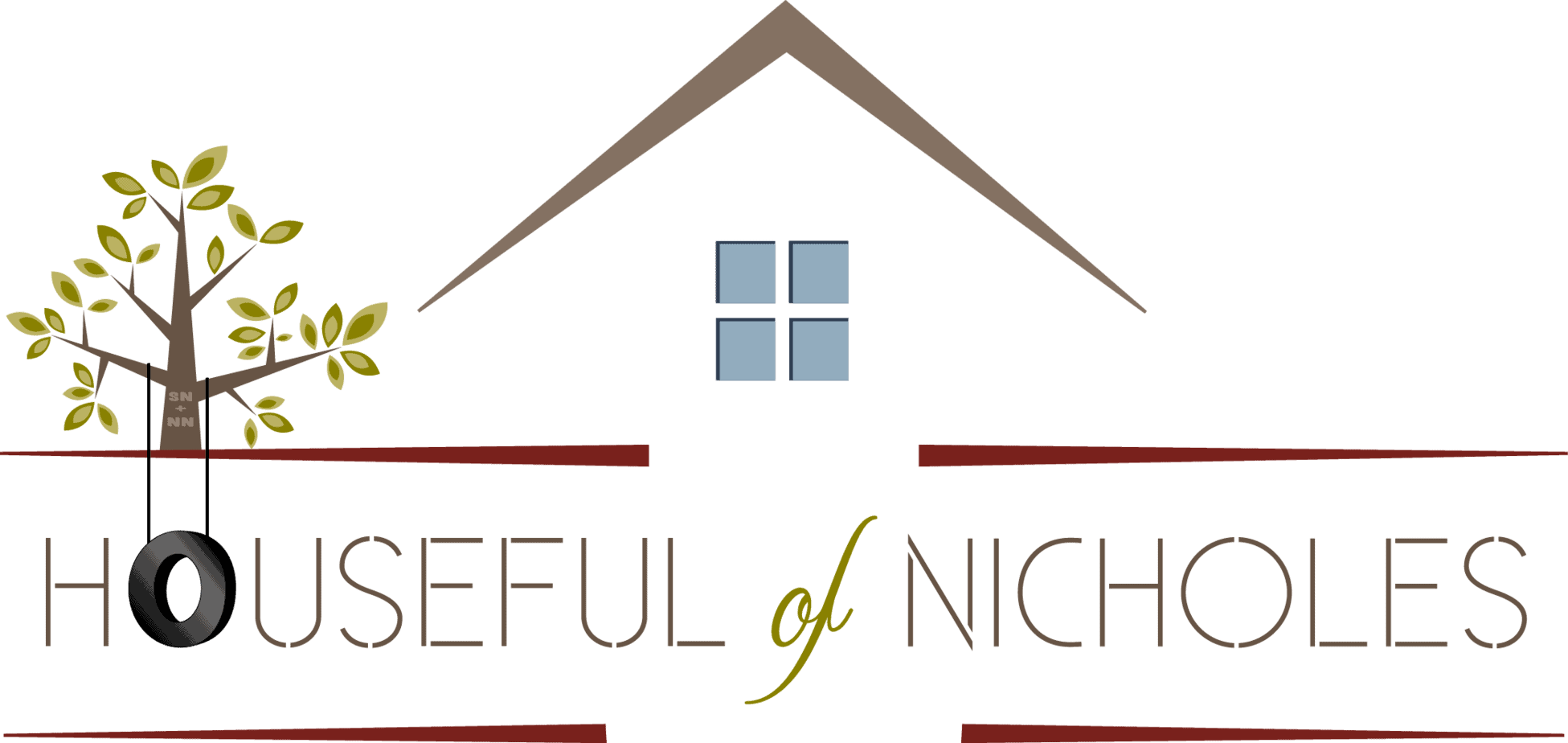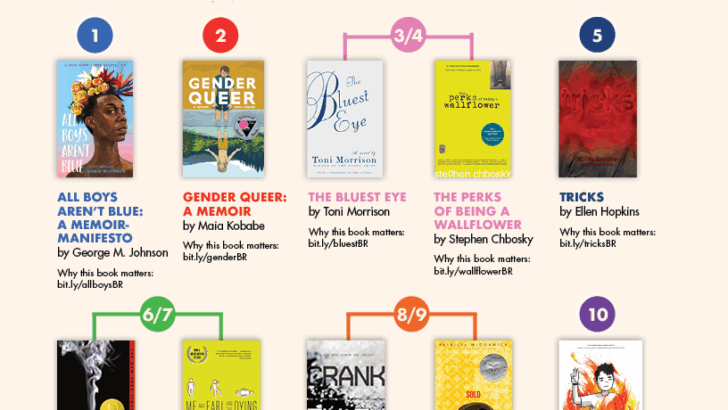Why Banned Books Week Matters More Than Ever
Here's something that should make you uncomfortable: nearly 23,000 books have been banned from public schools across the United States since 2021. That's not a typo. Twenty-three thousand. To put that in perspective, that's more books banned in four years than in the entire lifetime of any living American.
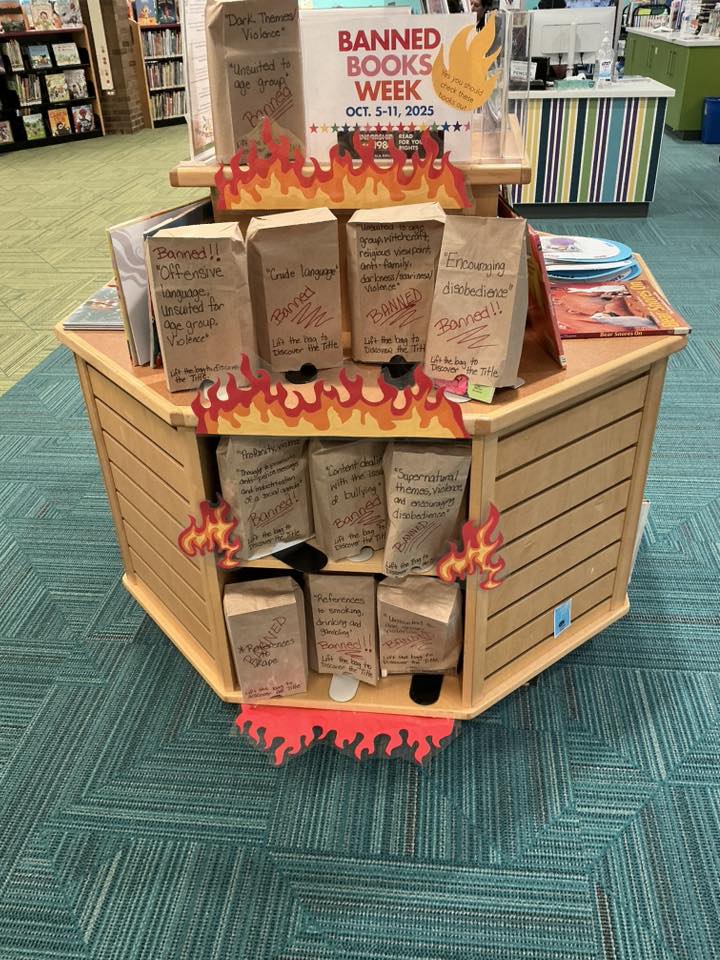
This week marks Banned Books Week (October 5-11, 2025), and this year's theme couldn't be more fitting: Censorship Is So 1984. Read for Your Rights. If you've read George Orwell's dystopian novel, you know precisely why that reference hits different right now.
For as long as I can remember, I have always been a lover of reading. Sunday papers, signs on the way to school, books, and books, and books. There wasn't a book that I wouldn't read, and the library was full of possibilities. Unfortunately, for people today, access to all these books is becoming increasingly limited.
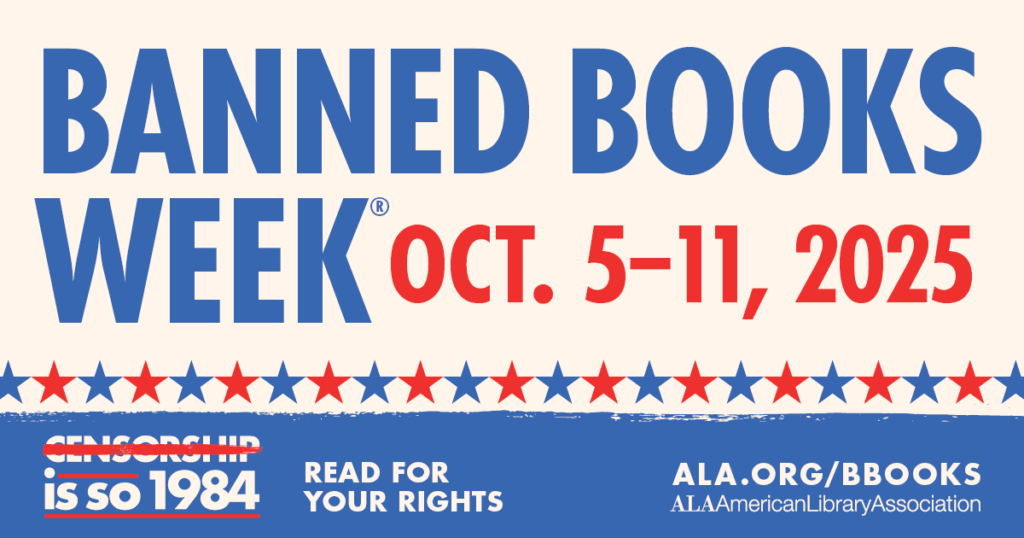
What's Actually Happening?
Let's talk numbers for a second because they tell a story that's hard to ignore. I also want to showcase my research skills, as I haven't written a long-form article in a while. During the 2024-2025 school year alone, there were 6,870 instances of book bans affecting nearly 4,000 unique titles. That's happening in schools across 23 states. Florida leads the pack with over 2,300 bans, followed by Texas and Tennessee. Now, let's be real. Do ANY of these states surprise you one bit?
However, what sets this apart from past attempts at censorship is that it's no longer primarily about adhering to official book review processes. In fact, 97% of these bans originated from fear of legislation, rather than actual legal requirements. Think about that. Schools and librarians are removing books not because they broke any rules, but because they're afraid they might.
PEN America, the organization tracking these bans, compares the current climate to McCarthyism and the Red Scare of the 1950s. Seriously. Read that again, but slowly. If you studied that era in history class, you know that's not a comparison anyone makes lightly.
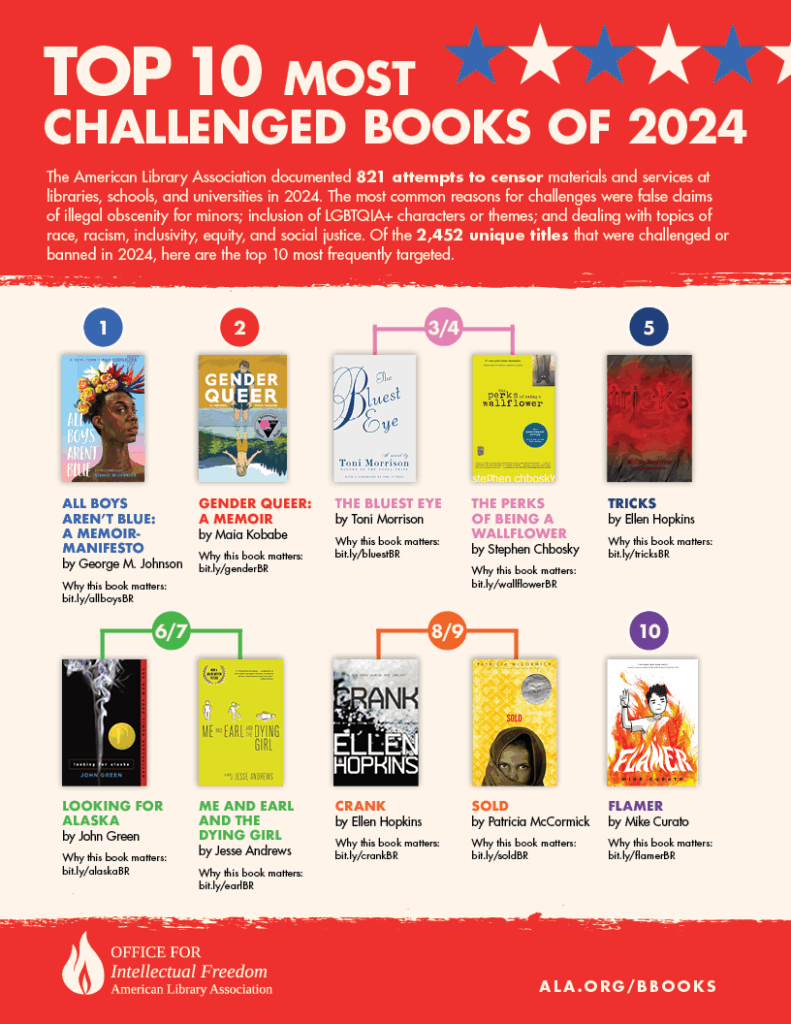
Who's Being Silenced?
Here's where it gets personal. The vast majority of banned books feature LGBTQ+ characters or themes, books about race and racism, or stories that include Black folks and other people of color. We're also seeing books that discuss sexual violence or have sexual references getting pulled from shelves, even when they're age-appropriate for older teens.
The message this sends is crystal clear: certain stories and certain people don't deserve to be seen. When a student can't find themselves reflected in the books in their school library, what does that tell them about their worth?
Some of the most-banned books this year include classics like Anthony Burgess's A Clockwork Orange and Judy Blume's Forever (which has been challenged for 50 years), as well as modern titles like Sarah J. Maas's romantasy novels that teens are devouring on BookTok. The list also includes award-winning books, such as Last Night at the Telegraph Club, which won a National Book Award, and Sold, a National Book Award finalist that explores the issue of human trafficking.
These aren't obscure titles. These are books that win major awards, helping teens process complex emotions and teach empathy and understanding. And they're being systematically removed from schools.
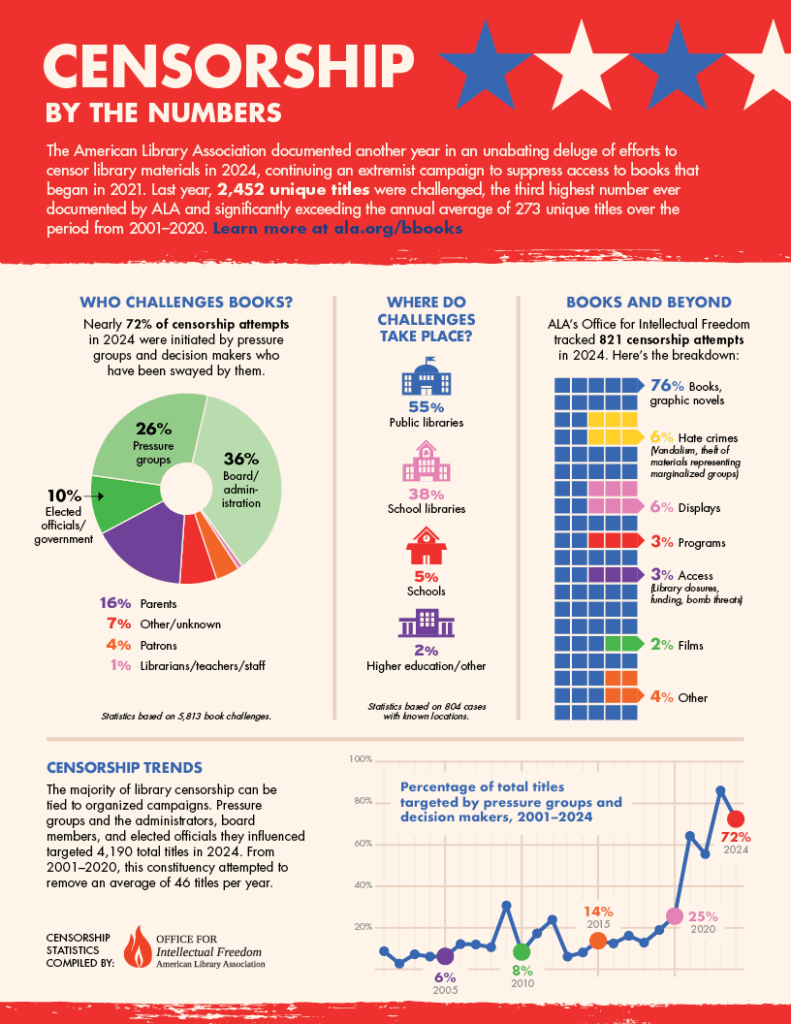
The Ripple Effect
The damage extends beyond empty library shelves. Authors whose books have been banned report emotional impacts on their creativity, with some feeling compelled to self-censor their future work. They lose income from canceled school visits. Future books might never be written because authors worry about the backlash.
And what about the students? Education scholar Dr. Rudine Sims Bishop put it perfectly: "When children cannot find themselves reflected in the books they read, or when the images they see are distorted, negative, or laughable, they learn a powerful lesson about how they are devalued in the society of which they are a part."
We're not just banning books. We're telling entire groups of young people that their experiences, their identities, and their stories don't matter enough to exist on school library shelves.
The Bigger Picture
This isn't happening in a vacuum. In 2025, federal efforts to restrict education began using the same rhetoric as state and local book-banning campaigns. What started as isolated incidents in a few school districts has evolved into a coordinated, nationwide movement.
Some schools are even pre-emptively removing books before they're challenged, a phenomenon researchers call "obeying in advance." It's censorship driven by fear, and it's remarkably effective. Once a book is removed, it is rarely returned. The bans become normalized, expected, just part of the landscape.
The parallel to 1984 isn't just clever marketing; it's a meaningful connection. In Orwell's novel, the government controlled information to control thought. They literally rewrote history and eliminated words from the language to make specific ideas impossible to express. Tell me right now that we aren't there yet. If you can't see it, the trajectory should concern anyone who values freedom of thought.
What This Means for Democracy
Access to diverse stories and information isn't just nice to have; it's essential. It's necessary for a functioning democracy. How can we expect young people to think critically, to understand different perspectives, to make informed decisions as future voters and leaders if we restrict their access to information?
Books teach empathy. They help us understand experiences different from our own. They challenge us to think about complex topics in safe ways. When we remove books that make us uncomfortable, we're not protecting kids. We're limiting their ability to understand the complex world they're inheriting.
The beauty of living in a free society is that you don't have to read books you disagree with. You can raise your own children with your own values. But the moment we decide that certain books shouldn't exist in public spaces because they might expose kids to ideas some parents don't like? That's where freedom starts to crumble.
What You Can Do
Feeling fired up? Good. Here's how to channel that energy:
Read a banned book. Choose one from PEN America's list of most banned books or check out your library's Banned Books Week display. Talk about it. Share why it mattered to you on social media.
Support your local library and librarians. These are the people on the front lines fighting for intellectual freedom. Show up to school board meetings. Write letters of support. Donate to library programming.
Contact your elected officials. Let your state and federal representatives know you oppose book banning and support the freedom to read. Make it clear that censorship is a voting issue for you.
Get involved with organizations fighting book bans. Groups like PEN America, the American Library Association, Unite Against Book Bans, and the National Coalition Against Censorship are doing crucial work. They need support through donations, volunteer work, or simply spreading awareness.
Host or attend a "Right to Read Night." The National Coalition Against Censorship has created resources for hosting one-night book clubs focused on challenged books. Gather your friends, choose a banned book, and engage in honest conversations.
Speak up when you see censorship. Whether it's at a school board meeting, in a parent group, or on social media, don't let book-banning efforts go unchallenged. Use your voice.
The Bottom Line
Banned Books Week isn't just about celebrating books that survived censorship attempts. It's a wake-up call. We're living through an unprecedented era of book banning and general censorship, and it's not showing signs of slowing down without active resistance from people who care about intellectual freedom.
This isn't a partisan issue, although it definitely feels that way, and it has been framed as such. This is about whether we trust young people to read challenging material, whether we believe in the marketplace of ideas, and whether we're willing to defend the freedom to read even when it's uncomfortable.
So this week, and every week after, make a choice. Read a banned book. Defend a challenged one. Support the people fighting for intellectual freedom. Because censorship might feel like something from 1984, but the fight against it? That's happening right now, and we all have a role to play.
Your rights are worth reading for. The question is: are you willing to fight for them?
